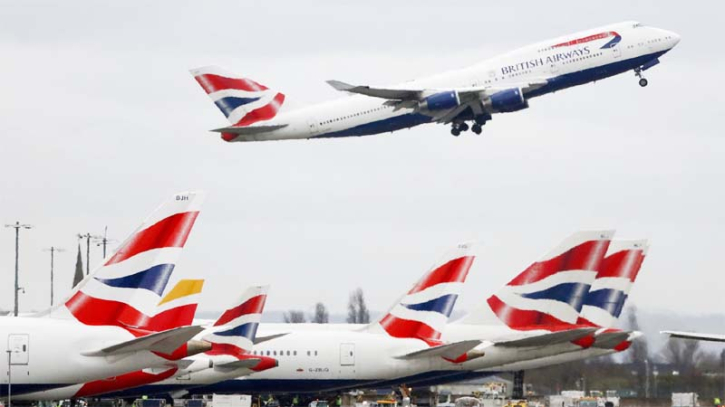UK Suspends All Flights to Iran Amid Sanctions

The UK, France, and Germany have imposed new sanctions on Iran in response to its supply of ballistic missiles to Russia for use in Ukraine, including a suspension of Iran Air flights to the UK and Europe. These measures were announced during a visit by US Secretary of State Antony Blinken to London.
Among the new sanctions are travel bans on several Iranian military officials. Blinken revealed that Iranian forces have trained Russians to use short-range missiles, which could be deployed against Ukrainian positions within weeks. UK Foreign Secretary David Lammy described the Iranian missile deliveries as a "dangerous escalation" that has enabled Russia to intensify its "illegal invasion of Ukraine."
"Iran must cease its support for [Russian President Vladimir] Putin’s unprovoked and barbaric assault on a sovereign democratic state," Lammy asserted. "The UK will continue to support Ukraine for as long as necessary."
At a press conference alongside Lammy, Blinken stated that Russian President Vladimir Putin is increasingly relying on support from Iran and North Korea to sustain his aggression against Ukraine.
The UK Foreign Office has targeted several key figures involved in the missile supplies, including Iranian Brigadier General Seyed Hamzeh Ghalandari, who oversees the country’s defence product exports. He, along with two other Iranian officials, is now subject to a travel ban and asset freeze. Additionally, five Russian cargo ships have been sanctioned for transporting military supplies from Iran despite repeated warnings.
Sanctions have also been imposed on organisations involved in producing Iran's Shahed drones, which Russia has used in attacks on Ukrainian cities.
The UK, France, and Germany, collectively known as the E3, have urged Iran "to immediately cease all support for Russia’s war against Ukraine and halt the development and transfer of its ballistic missiles."
Blinken echoed this sentiment, highlighting that the sanctions reveal Iran's destabilising influence extending beyond the Middle East.
The new sanctions come as Russia continues to advance in eastern Ukraine, with its forces approaching the crucial settlement of Pokrovsk. The fall of Pokrovsk would cut off a major supply route, potentially forcing Ukraine to retreat from Chasiv Yar and moving the front line closer to Kramatorsk, a key industrial city.
Blinken noted that Iranian short-range missiles would support the Russian advance by allowing Moscow to use its existing arsenal on more distant targets, while reserving new missiles for closer-range targets.
The top US diplomat criticised Iran's new president, Masoud Pezeshkian, who has expressed a desire for improved relations with the West. "Iran's new leadership has repeatedly stated a wish to restore engagement with Europe and seek sanctions relief. However, destabilising actions like these will achieve the opposite," Blinken said.
Blinken and Lammy also announced a joint trip to Ukraine this week, marking the first such visit in years and emphasising the close partnership between the UK and the US.
Blinken said one goal of the visit is to "hear directly from Ukrainian leaders" about their needs and how the US can support them. UK Prime Minister Sir Keir Starmer has confirmed that the UK government will continue its support for Ukraine, including a £3 billion military aid package.
Last week, the UK government announced the delivery of hundreds more short-range missiles to Ukraine, valued at £162 million. However, Ukrainian President Volodymyr Zelensky has criticised the speed of the weapons deliveries and requested permission to strike targets deep inside Russia with Western-supplied missiles—a request the US has so far resisted.
Blinken declined to comment on the US's response to Zelensky's ongoing request during discussions in Kyiv.
 (5).png)








